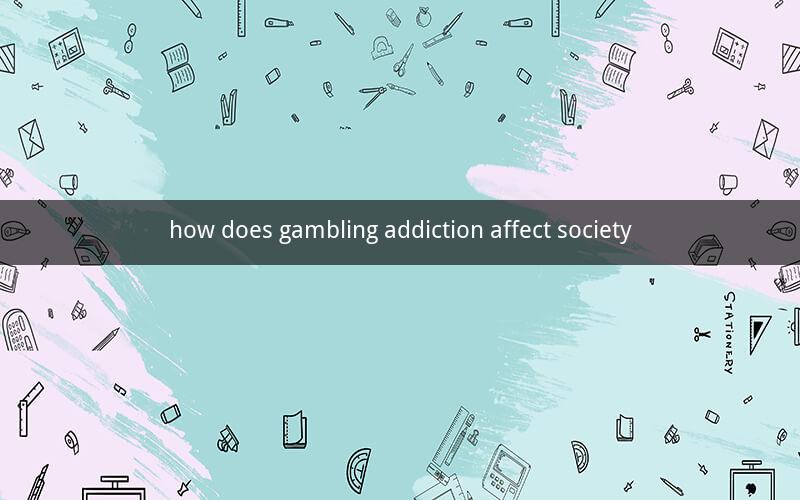
How Does Gambling Addiction Affect Society?
Table of Contents
1. Introduction to Gambling Addiction
2. The Scope of Gambling Addiction
3. Economic Impacts
4. Social and Family Consequences
5. Mental Health Ramifications
6. Public Health Concerns
7. Crime and Justice System
8. Prevention and Treatment Efforts
9. Conclusion
1. Introduction to Gambling Addiction
Gambling addiction, often referred to as problem gambling or pathological gambling, is a complex condition characterized by an inability to control or stop gambling despite negative consequences. This addiction affects individuals from all walks of life and has far-reaching effects on society as a whole.
2. The Scope of Gambling Addiction
The prevalence of gambling addiction varies across different regions and demographics. However, studies have shown that millions of people worldwide are affected by this condition. The ease of access to online gambling platforms has further exacerbated the issue, making it easier for individuals to develop and maintain gambling addictions.
3. Economic Impacts
Gambling addiction has significant economic implications for society. Individuals with gambling addictions often experience financial strain, leading to job loss, debt, and bankruptcy. This, in turn, affects the economy by reducing consumer spending and increasing the burden on social welfare systems.
4. Social and Family Consequences
The social and family consequences of gambling addiction are profound. Relationships suffer as individuals may become secretive or deceitful about their gambling habits. Family members may experience emotional distress, financial strain, and even physical abuse. Children of gamblers are also at a higher risk of developing gambling problems themselves.
5. Mental Health Ramifications
Gambling addiction is closely linked to mental health issues, including depression, anxiety, and substance abuse disorders. The stress and financial strain associated with gambling can exacerbate existing mental health conditions, leading to a cycle of addiction and poor mental health.
6. Public Health Concerns
Gambling addiction is a public health concern due to its impact on physical and mental well-being. Individuals with gambling problems may engage in risky behaviors, such as excessive alcohol consumption or unsafe sex, to cope with their addiction. This can lead to a range of health issues, including cardiovascular diseases, liver disease, and HIV/AIDS.
7. Crime and Justice System
Gambling addiction can lead individuals to engage in criminal activities, such as theft or fraud, to support their gambling habits. This places a burden on the justice system, as law enforcement agencies must address these crimes while also dealing with the underlying addiction issues.
8. Prevention and Treatment Efforts
Efforts to prevent and treat gambling addiction are essential in mitigating its impact on society. Prevention programs aim to educate individuals about the risks of gambling and promote responsible gambling practices. Treatment options include therapy, counseling, and support groups, which help individuals develop coping strategies and address underlying issues.
9. Conclusion
Gambling addiction is a complex issue with far-reaching consequences for individuals, families, and society. Understanding the scope of the problem and its effects is crucial in developing effective prevention and treatment strategies. By addressing gambling addiction, we can create a healthier, more stable society.
Questions and Answers
1. What are the primary risk factors for developing a gambling addiction?
- Risk factors include a family history of addiction, exposure to gambling at an early age, and certain personality traits, such as impulsivity and thrill-seeking behavior.
2. How does gambling addiction affect the economy?
- It leads to increased unemployment, reduced consumer spending, and higher costs for social welfare systems due to the financial strain experienced by individuals with gambling problems.
3. What are some common signs of gambling addiction in a family member?
- Signs include secretive behavior, financial problems, neglect of responsibilities, and changes in mood or personality.
4. How can employers help identify and support employees with gambling addiction?
- Employers can offer confidential counseling services, provide education on gambling addiction, and create a supportive work environment that encourages employees to seek help.
5. Are there any effective treatments for gambling addiction?
- Yes, treatment options include cognitive-behavioral therapy, motivational interviewing, and support groups like Gamblers Anonymous.
6. How can individuals protect themselves from developing a gambling addiction?
- They can set a budget for gambling, only gamble with money they can afford to lose, and avoid gambling in environments that trigger their addiction.
7. What role do online gambling platforms play in the rise of gambling addiction?
- Online platforms make gambling more accessible and can lead to quicker and more frequent gambling, increasing the risk of addiction.
8. How can communities support individuals with gambling addiction?
- Communities can offer support groups, counseling services, and educational programs to raise awareness about the issue and provide resources for those affected.
9. What are some of the long-term health consequences of gambling addiction?
- Long-term health consequences include mental health disorders, substance abuse, and physical health issues due to risky behaviors.
10. How can governments regulate gambling to reduce the prevalence of addiction?
- Governments can implement stricter regulations on advertising, limit the number of gambling venues, and provide resources for education and treatment.